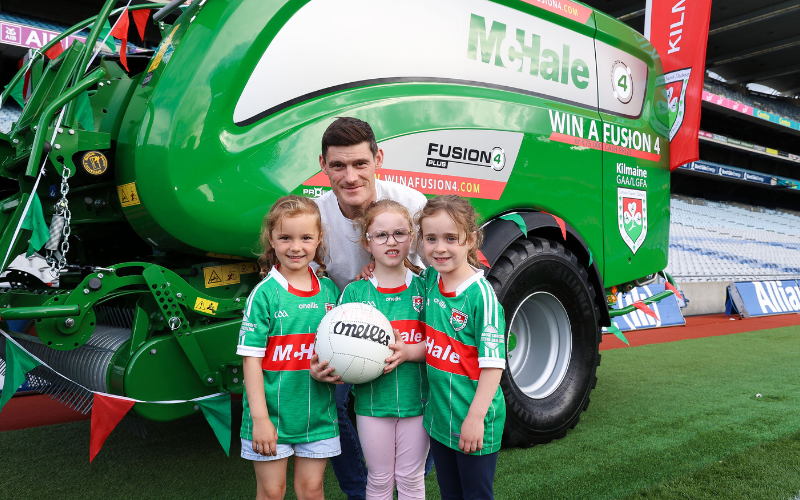The taffeta. The sun kissed skin. The Irish lilt attached to the purring voices.
When I first met the lasses from Celtic Woman at the Irish Embassy for their “debutante ball” introducing them to the Irish American glitteratti, it was impossible not to get sucked into their intoxicating orbit. No surprise that their debut show and album would be a smash, creating a juggernaut that would propel them through 10 albums in 11 years.
Since its release in January, their new album, Destiny, has dominated the top spot on Billboard’s World Music Chart and propelled a massive 85-city North American concert tour of the same name.
Critics, including this one on occasion, have not always been kind to this glitzy PBS portrayal of Irishness, which has been panned for serving up the musical equivalent of an Irish breakfast made in a Barbie kitchen. New cast member Mairéad Carlin understands that, but asks you to walk a mile in her heels before you make any harsh judgments.
“Not many people understand what Celtic Woman is about, especially in Ireland,” she asserts. “When you put the word Celtic in front of it, it is twee. But on the other hand, this is music I grew up with. These songs are very deep rooted in me.
“When I am out there singing ‘Danny Boy’ to the audience and I watch how moved they are, it is very hard not to get moved yourself and fall in love with being Irish. That, in my mind, is what this show is all about.”
The new tour features an entirely new production showcasing vocalists Carlin, Susan McFadden and newest member Éabha McMahon along with violinist and founding member Mairéad Nesbitt, accompanied by a group of equally talented musicians and dancers. Destiny (on Manhattan Records) is Celtic Woman’s 10th CD and features a fusion of traditional Irish music and modern songwriting including the Waterboys’ classic “The Whole of the Moon,” Ed Sheeran’s “I See Fire,” Mutt Lange’s “Walk Beside Me,” Brendan Graham’s “Sometimes a Prayer Will Do,” and the popular theme song from video game, "Skyrim."
Nesbitt is humbled by the huge responsibility levied on Celtic Woman for showcasing the work of songwriters, many of who would never be heard by Irish Americans otherwise.
“I have a folk background,” she explains. “Paul Brady grew up the road from me. He’s had a million hits but most Americans don’t know his name. I hope they will discover Paul and other amazing songwriters through us.
“It’s an amazing responsibility for us. We live in a world where artists are signed into ‘360-degree agreements.’ Performance and merchandise drives those deals, while records and songwriters no longer do. Songwriters lose in deals like that.
“These songwriters get a cut every night when we perform those songs. It’s a way for their music getting heard and helps support them financially. Without songwriters, we’d have nothing to sing!”
The companion DVD DESTINY: Live in Concert, was filmed in Dublin, in the Round Room at the Mansion House, the historic home of the Lord Mayor of Dublin. It has already begun airing on local public television stations as the latest in Celtic Woman's lengthy series of successful PBS television concert specials.
A conversation with Carlin is an inspirational one. This young woman has endured the ups and downs of the music business and has arrived on the Celtic Woman stage grateful for this second chance. Before she hit Bourbon Street on the Big Easy strip with her cast mates she was able to squeeze in a nice chat. Here’s how it went:
What drew you to Celtic Woman?
I loved the arrangement and their honesty when they perform. In a world where we are completely flooded with X Factor and Instagram, things that aren’t real, honesty onstage like that is hard to come by.
I’m surprised to hear you say that. Honesty wouldn’t be a word associated with a show like this, given its high-watt showmanship and tightly scripted choreography. How do you project honesty in that environment?
I was worried I was going to struggle, to be honest. It was me and a guitarist with an occasional accordion when I was starting out in the folk scene. No click tracks or Broadway glitz.
The people I’m onstage with are friends. There is a huge amount of trust.
How did you land this gig?
It was a weird thing. I was signed to Decca Universal in the U.K. I had a record ready to go and it got shelved the week before it was released. I was left with nothing and it was horrible at the time but without that happening, I never would have fell into this.
In the interim when I was left with nothing, I taught singing and rediscovered my love for singing. The American Ireland Fund invited me to sing and at that party I brought my CDs. I gave one to a member of the Celtic Woman company at Manhattan Records and when one of them moved on, I got the call. I interviewed with David Downes (show producer), auditioned, and met the girls two days before we performed.
Wow! That’s pressure! No chance to build a team before hitting the stage! That could have ended badly for all involved.
I know! I was, like, how am I going to do this? I never met these girls. They were on tour and I came in halfway through and I had to learn everything backwards on videotape.
It’s the best thing that ever happened to me. It’s just a blessing. Yesterday Ava and I went to the McCoy House, which exists for women struggling with depression and alcoholism.
You mentioned your resistance to social media, yet that’s a reality of the music business: record labels sign artists based on their Twitter followers. How do you reconcile that?
It’s a struggle. I don’t want to succumb fully to social media but then again, you are looked at based on the number of followers you have. I get really annoyed when I see artists put things out on the Internet that are irresponsible.
One of the reasons I got shelved at Decca was for that reason; I had something like 1,000 followers. I feel like the social media/American Idol thing is instant gratification. People going through that machine just expect a career from that.
How has that experience of going through all of that --getting dropped and reinventing yourself -- prepared you for the place you find yourself in today?
It made me stay humble. It’s so easy to be carried away with eight months of touring. I got sick emotionally when the rug was pulled from under me. I got overwhelmed. My whole body was covered in hives.
I began to rebuild my mind and body and I am so grateful to have come out the other side of it. It made me aware of why I do this: to be singing.




Comments